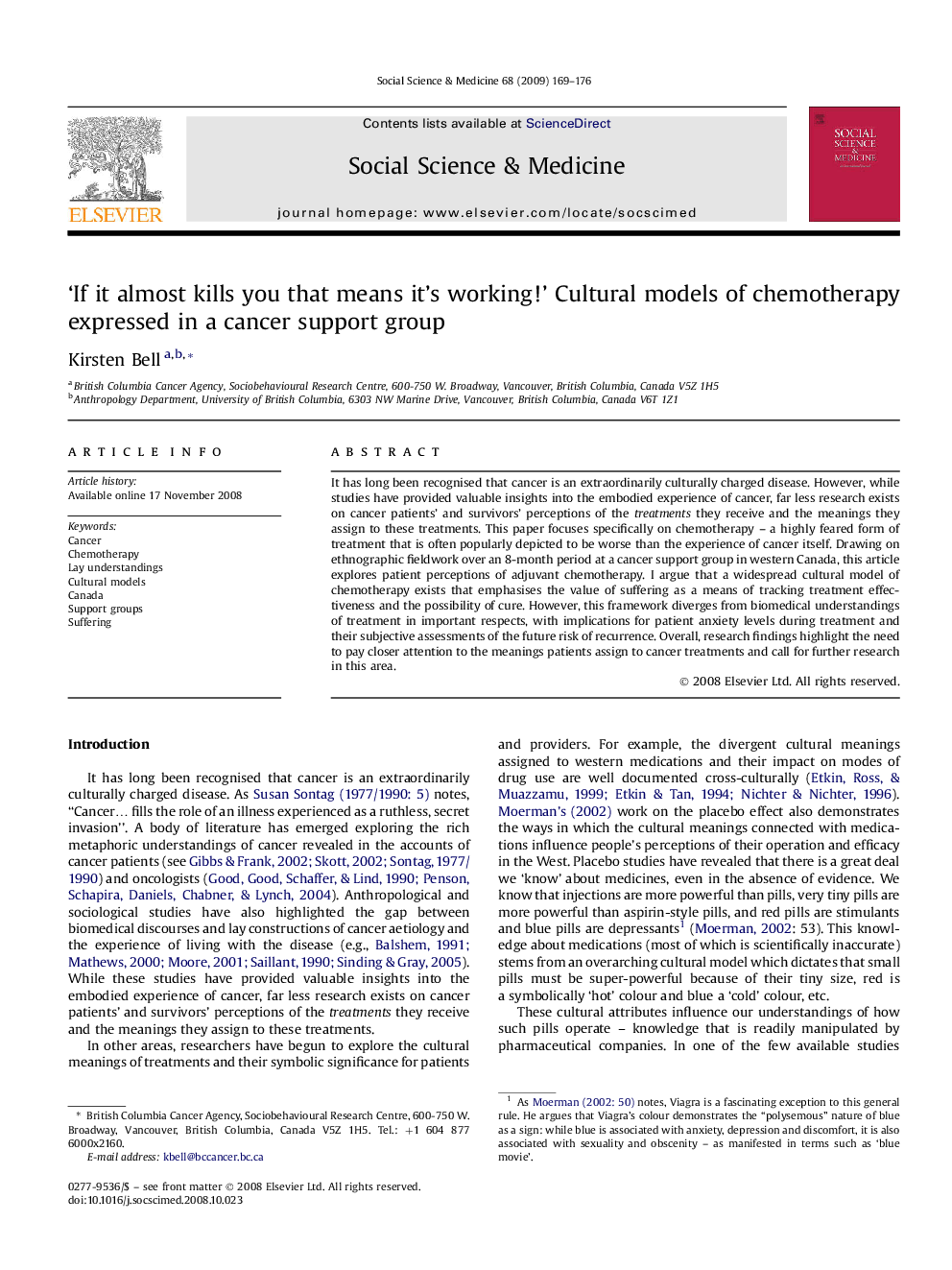| Article ID | Journal | Published Year | Pages | File Type |
|---|---|---|---|---|
| 954054 | Social Science & Medicine | 2009 | 8 Pages |
It has long been recognised that cancer is an extraordinarily culturally charged disease. However, while studies have provided valuable insights into the embodied experience of cancer, far less research exists on cancer patients' and survivors' perceptions of the treatments they receive and the meanings they assign to these treatments. This paper focuses specifically on chemotherapy – a highly feared form of treatment that is often popularly depicted to be worse than the experience of cancer itself. Drawing on ethnographic fieldwork over an 8-month period at a cancer support group in western Canada, this article explores patient perceptions of adjuvant chemotherapy. I argue that a widespread cultural model of chemotherapy exists that emphasises the value of suffering as a means of tracking treatment effectiveness and the possibility of cure. However, this framework diverges from biomedical understandings of treatment in important respects, with implications for patient anxiety levels during treatment and their subjective assessments of the future risk of recurrence. Overall, research findings highlight the need to pay closer attention to the meanings patients assign to cancer treatments and call for further research in this area.
